Hey there! We all know how important it is to stay on top of our health insurance, especially as premiums come due. It's easy to forget these payments amidst our busy schedules, but staying current ensures access to vital health services when we need them most. If you'd like to learn more about managing your health insurance premium payments effectively, keep reading!
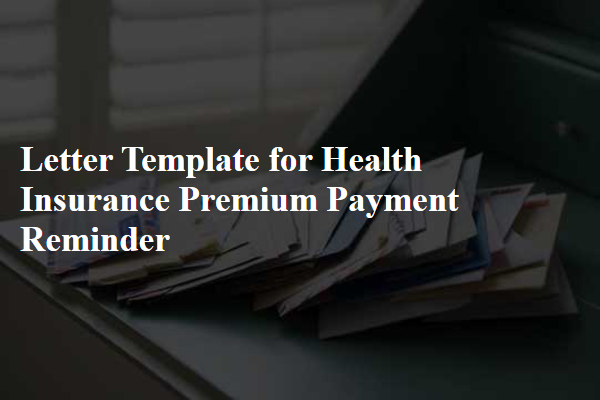
Recipient Details
Health insurance providers typically send reminders regarding premium payments to ensure that policyholders stay informed about due dates and payment options. This reminder often includes the recipient's name, policy number, and payment due date, along with the premium amount owed. Additionally, contact information for customer service is usually provided, allowing policyholders to clarify any questions about their coverage. Timely reminders play a crucial role in maintaining continuous coverage, preventing lapses that could result from missed payments. It's imperative for insured individuals to keep their payment information updated to avoid any disruptions in their health insurance benefits.
Payment Due Date
Health insurance premium payments are critical to maintaining coverage for medical expenses. A payment reminder for health insurance should clearly state the due date, typically the first of the month for monthly plans, accompanied by the specific amount owed. For example, if the premium due is $250 for a plan from Blue Cross Blue Shield (a major health insurance provider in the U.S.), the reminder should highlight this figure prominently. It's essential to mention the potential consequences of late payment, such as lapsing coverage or additional fees, to encourage timely action. Additionally, providing various payment methods available (like online payment via a secure portal or check) can facilitate the process and encourage compliance.
Outstanding Balance
An outstanding balance in health insurance premiums indicates dues that require immediate attention to prevent coverage disruptions. Clients may receive notices indicating the specific amount overdue and any grace periods, often lasting up to 30 days. Late payments can result in penalties or policy cancellations, impacting access to crucial medical services, including hospitalizations and routine check-ups. Insurance providers often send reminders via email or traditional mail, detailing payment methods, such as bank transfers or online portals, to facilitate timely settlement. Maintaining up-to-date payments ensures uninterrupted access to healthcare benefits and financial protection against exorbitant medical expenses.
Consequences of Non-Payment
Non-payment of health insurance premiums can lead to significant consequences for policyholders. Defaulting on payments may result in a lapse of coverage, meaning individuals could find themselves without essential medical services or financial protection during critical health events. Insurance companies typically provide a grace period of 30 days after the due date, allowing policyholders to rectify payment issues, but missing this window can trigger immediate cancellation of the policy. Reinstating a lapsed policy may require additional fees and a comprehensive underwriting process, potentially leading to denial of coverage for pre-existing conditions. Furthermore, the financial impact can be substantial, as unforeseen medical expenses can accumulate rapidly without the safety net provided by health insurance.
Contact Information and Payment Options
Health insurance premium payment reminders play a crucial role in ensuring continuous coverage. Policyholders should be aware of important contact information, including customer service hotlines and email addresses. Timely communication can be facilitated through platforms like online portals or dedicated mobile apps. Understanding various payment options is essential for ease and convenience; choices typically include automatic bank transfers, credit card payments, or mailing checks. Deadlines for payments, often set to the first day of each month, can prevent lapses in coverage, emphasizing the importance of adhering to these schedules. Late fees may apply if payments are not received on time, further underscoring the urgency of addressing premium payments.

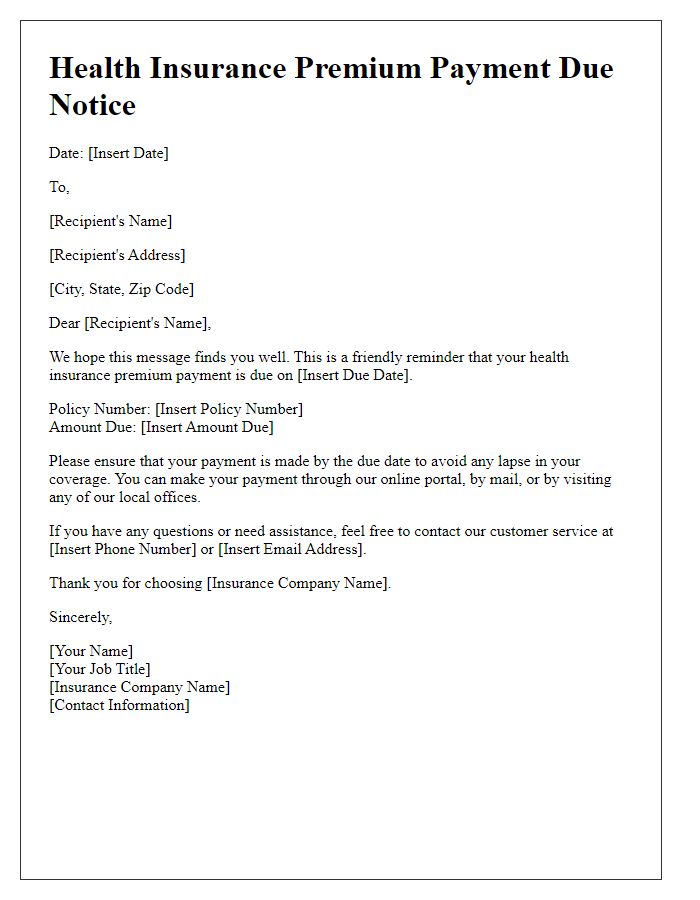
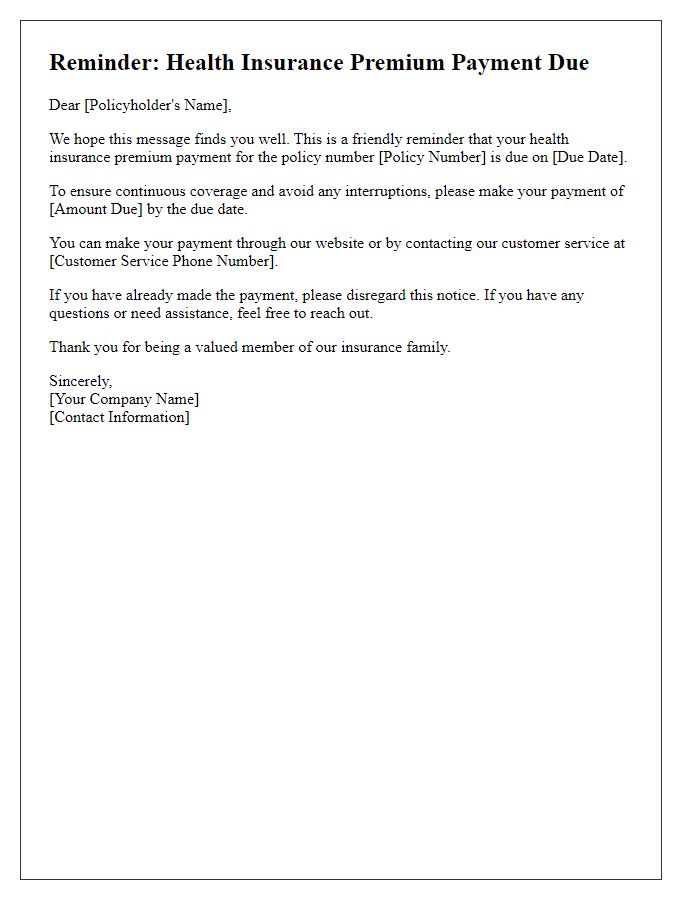
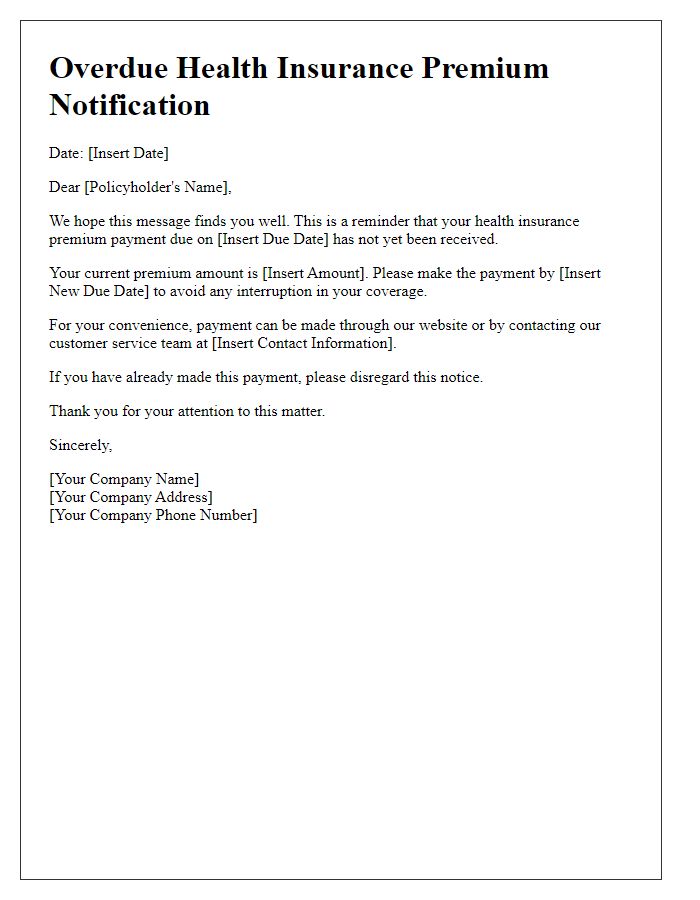
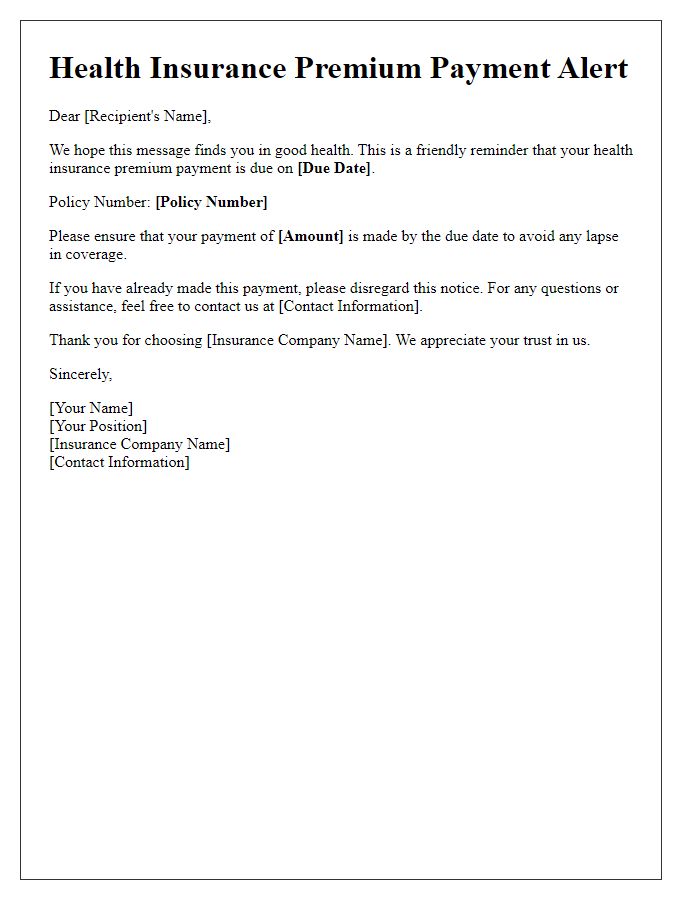
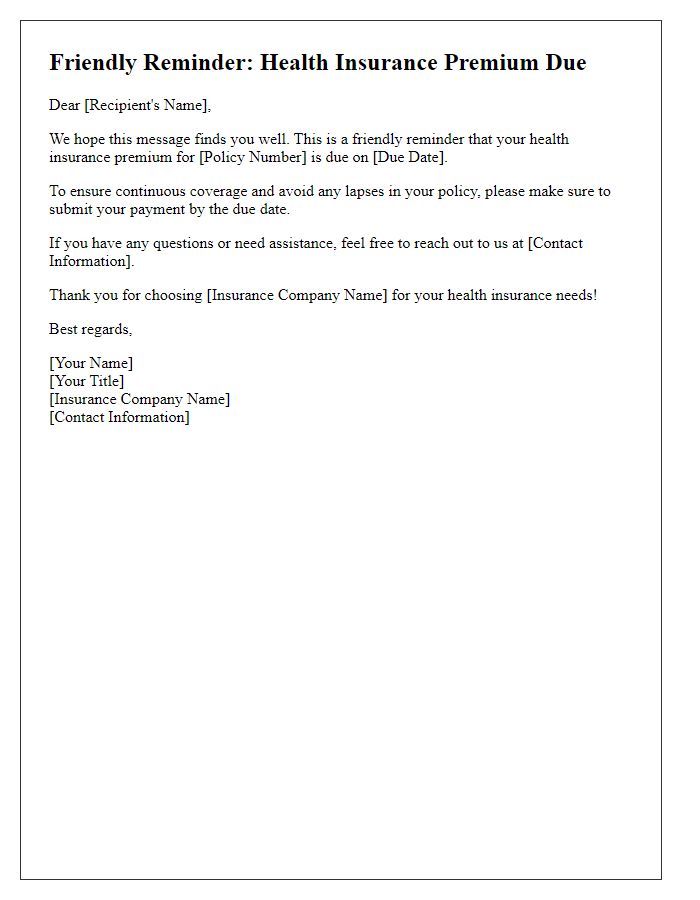
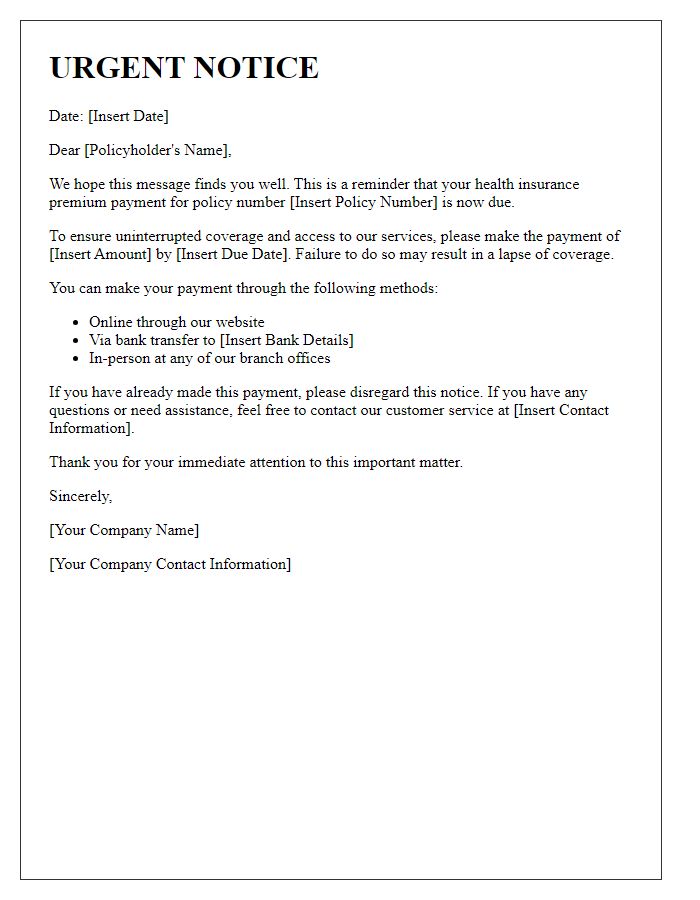
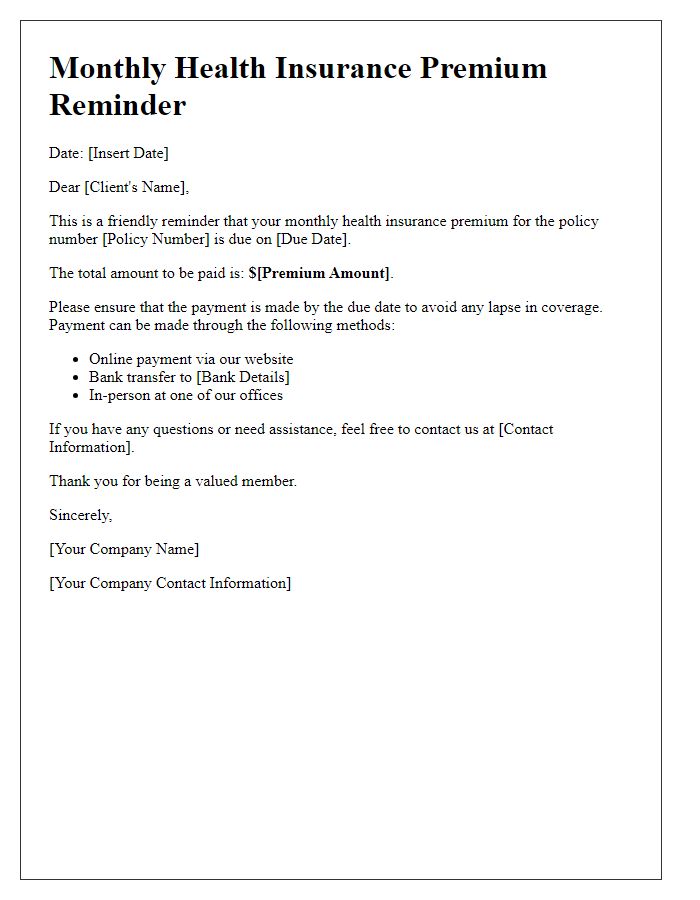
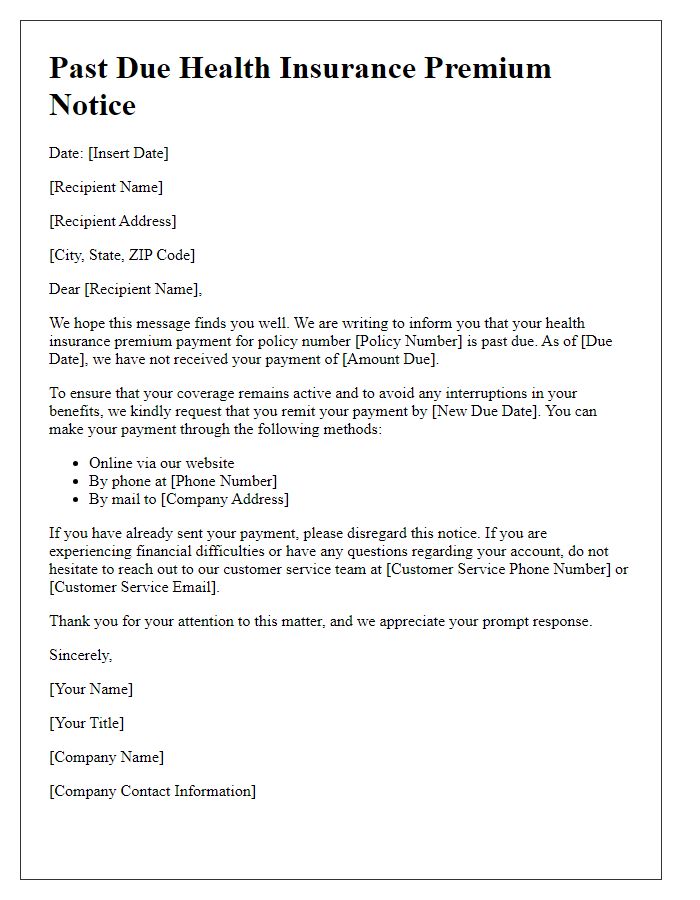
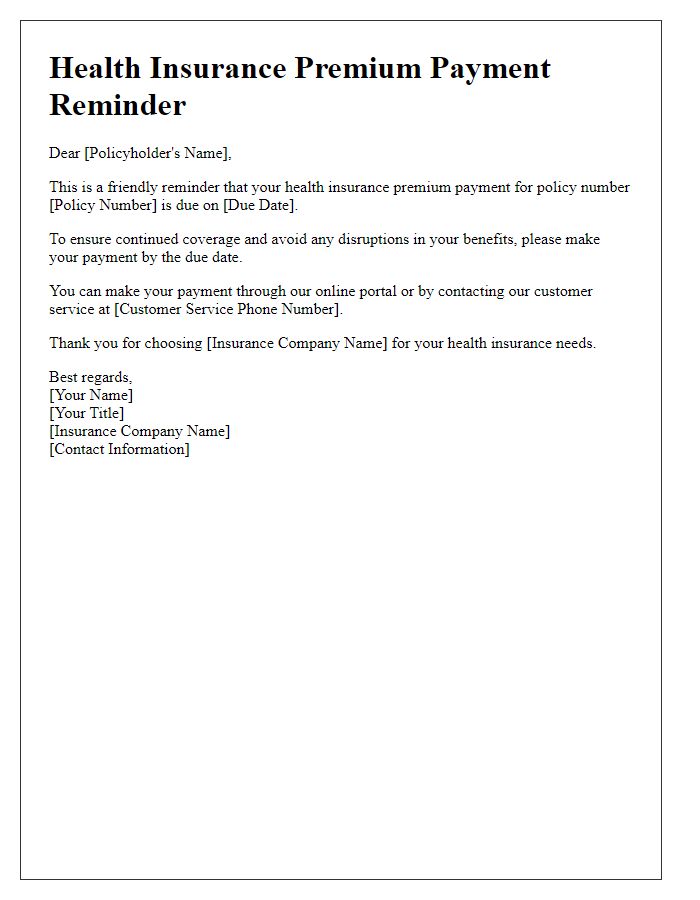
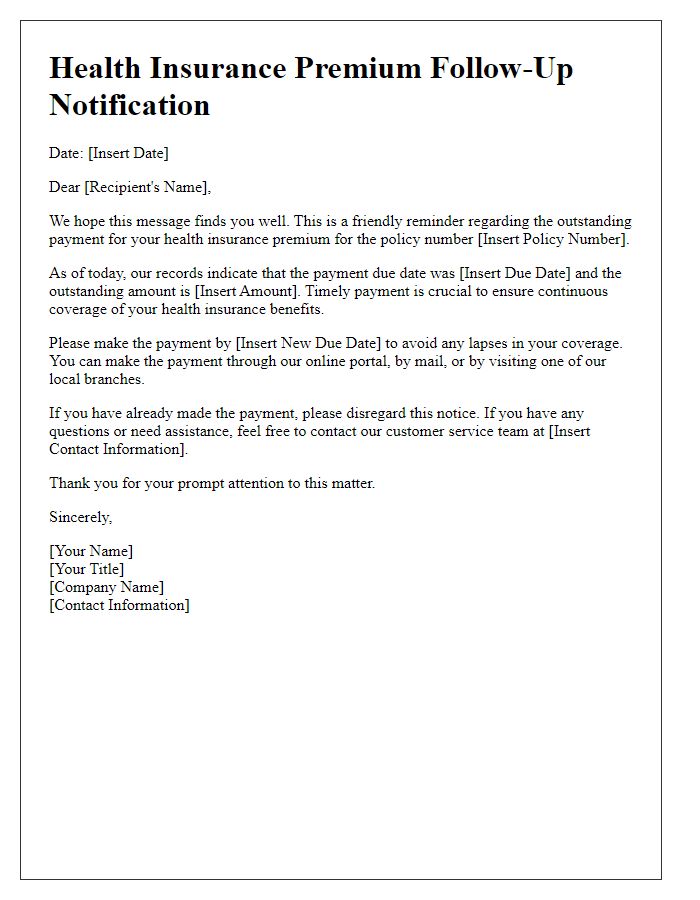

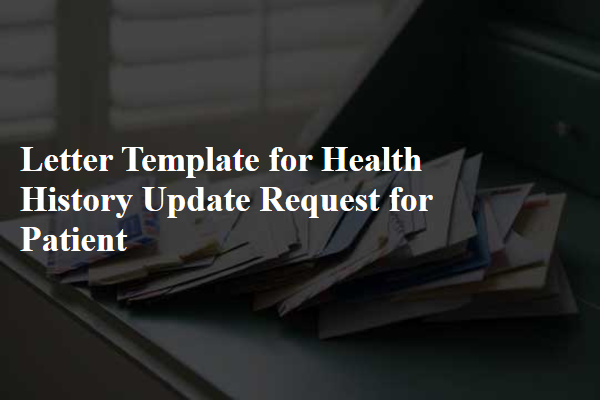
Comments